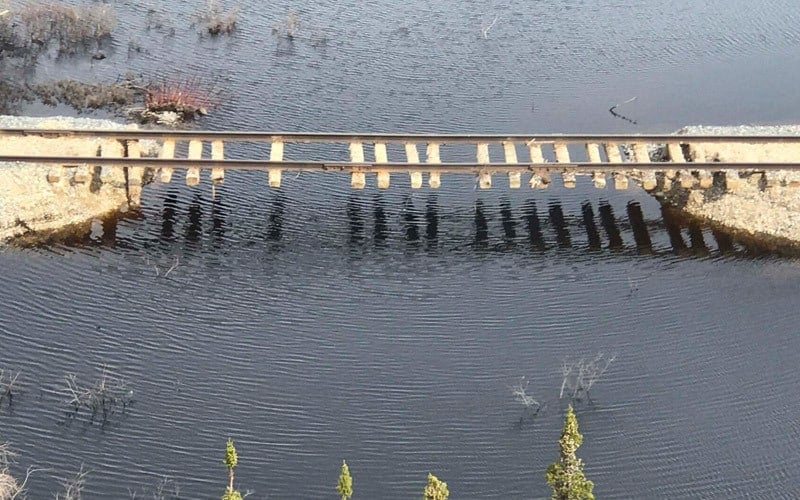Canadian Wheat Board
Overview
On December 16, 2012, Bill C-18, the Act to end the single desk, farmer-controlled Canadian Wheat Board, became law in spite of a December 9 Federal Court ruling that the Bill had been introduced contrary to the rule of law.

On April 15, 2015, Agriculture Minister Ritz announced that the remaining assets of the CWB would be given to G3, a partnership of Bunge and SALIC, a subsidiary of Saudi Arabia’s sovereign wealth fund (download a PDF version of the CWB Comparison Chart).
The NFU was active in trying to stop the dismantling of the CWB, and continues to support actions to regain farmer control and to recover farmers’ assets.
The federal government passed legislation (Bill C-18, the Marketing Freedom for Grain Farmers Act) to end the Canadian Wheat Board’s single desk authority effective August 1, 2012, without first holding a binding farmer vote on the proposed changes to the CWB’s single desk, which was required under the Canadian Wheat Board Act that was in effect when Bill C-18, was introduced. In October 2014 it came to public attention that the CWB was being privatized on an accelerated schedule, and that a private company, FNA, was seeking investors to fund a bid to obtain the assets. (Read the NFU’s analysis: CWB to sell itself, in secret and not necessarily to the highest bidder.) The FNA’s proposal was rejected by the CWB.
The Friends of the Canadian Wheat Board (which includes representation from the NFU) challenged the legality of Bill C-18 in Federal Court. In his December 9, 2011 decision, Federal Court Justice Campbell declared that the introduction of Bill C-18 under these circumstances violated the rule of law. The federal government disregarded the ruling and proceeded with the Bill, yet also appealed the ruling. The appeal was heard on May 23, 2012. On June 18, 2012 the Federal Court of Appeal overturned Justice Campbell’s decision. On July 26, 2012, the Friends of the Canadian Wheat Board announced they would seek leave to appeal at the Supreme Court of Canada.On January 17, 2013 the Supreme Court announced that it would not hear the appeal.
The Friends of the CWB also went to court to get an injunction to stop the government from putting Bill C-18 into action until such time as the above Federal Court decision had exhausted the appeal process. This case was heard on December 19. Justice Perlmutter of the Manitoba Court of Queen’s Bench denied the injunction.
The Friends of the CWB also initiated a class action lawsuit seeking to restore the Canadian Wheat Board and recover damages farmers have suffered as a result of the Federal Government’s tampering with western grain marketing. The lawsuit alleges that the Federal Government acted unlawfully by passing legislation that dismantled the Canadian Wheat Board and by denying farmers their statutory and constitutionally-protected rights. (Read the Statement of Claim.) The Federal Court ruled against the claims for expropriation, conversion, unjust enrichment, unlawful interference with economic relations and breach of trust on the grounds of having no reasonable prospect of success.
The Friends of the CWB request to appeal that decision was denied by the Supreme Court of Canada. However, the Courts have given farmers a green light to proceed with the parts of the class action case based on the misallocation of CWB Pool account funds in 2011/12, which is where the Friends of the CWB are focussing their efforts now. The NFU encourages people to get involved with this legal action by registering to get updates from the Friends of the CWB and by donating funds to support the action. Indicate your donation is for the CWB legal action.
The Union Farmer Quarterly article, Grains, Trains and Democracy, by Stewart Wells provides a context for, and a mid-2012 update on, the Friends of the CWB legal action.
Because of trade deals such as NAFTA, the CWB’s single desk will be difficult, but not impossible, to reinstate. The National Farmers Union says farmers, not MPs, should have decided the future of their grain marketing agency and we are working to recover the single-desk, farmer-controlled Canadian Wheat Board.
In the summer of 2011 the CWB held a plebiscite of its own to provide an opportunity for farmers to express their preference on the single desk question. Results were announced on September 12 and showed that a clear majority of farmers support the single desk.
If you would like to get email updates regarding the CWB, you can join the list-serve, Our Board, Our Business.
If you use Facebook, consider joining the pages Save the CWB and Friends of the Canadian Wheat Board. The CWB Alliance website is also a good source of information.
Recent action
The Fight to Save the CWB
NFU Vows to Continue Quest for Accountability on CWB – Media Release, January 18, 2013
Canadian Wheat Board (CWB) Court Cases: The Rule of Law and Democracy – 2012 Convention Presentations
Dismantling the Wheat Board – What’s At Stake? Pamphlet by the CWB.
NFU in Ontario sends an open letter to Minister Ritz
The Fight to Save the CWB Begins – by Kevin Wipf in the Union Farmer Quarterly
“In defence of the Canadian Wheat Board: The single desk is a source of justice in a volatile industry.” Article by Terry Boehm published in Briarpatch Magazine.
“Built by generations of farmers, the Canadian Wheat Board must not be lost to right-wing ideology” Op Ed by Terry Boehm
Lies Someone Told Me, is an insightful article about producer cars, short line railways and the CWB, by the late Paul Beingessner.
What Difference Does the CWB Make? Common questions about the Canadian Wheat Board along with brief answers.
Gerry Ritz said he just wanted to give western farmers the same open market opportunities as Ontario wheat farmers. “Canadian Wheat Board and Ontario Wheat Producers Marketing Board: Two very different situations” by the NFU shows that the two situations are completely different.
Australian’s single desk Australian Wheat Board was dismantled in 2008. When Australia lost its Single Desk tells how it has worked our for Australian farmers (Op Ed by Cathy Holtslander).
Agriculture writer Wendy Holm spoke to Canadian dairy farmers in her article Why You Should Care About CWB Vote
In 2011, several Canadian organizations signed on to a letter in support of keeping the CWB and respecting our democracy by upholding farmers’ right to vote on any proposed changes.
The NFU has also issued numerous press releases about the CWB.


